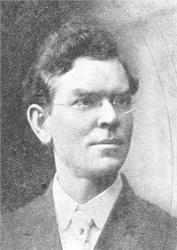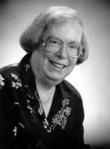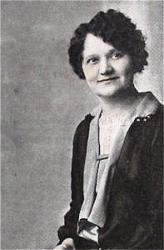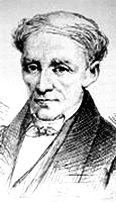Planning worship?
Check out our sister site, ZeteoSearch.org,
for 20+ additional resources related to your search.
- |
User Links
Person Results
Arthur T. Russell
1806 - 1874 Person Name: Arthur Tozer Russell, 1806-1874 Meter: 8.7.8.7.8.8.7.7 Translator (St. 2) of "Break Forth, O Beauteous Heavenly Light" in Hymnal and Liturgies of the Moravian Church Arthur Tozer Russell was born at Northampton, March 20, 1806. He entered S. John's College, Cambridge, in 1824, took the Hulsean Prize in 1825, and was afterwards elected to a scholarship. He was ordained Deacon in 1829, Priest in 1830, and the same year was appointed Vicar of Caxton. In 1852, he was preferred to the vicarage of Whaddon. In 1863, he removed to S. Thomas', Toxteth Park, near Liverpool, and in 1867, to Holy Trinity, Wellington, Salop. He is the editor and author of numerous publications, among them several volumes of hymns.
--Annotations of the Hymnal, Charles Hutchins, 1872.
=================================
Russell, Arthur Tozer , M.A. He was the son of the Rev. Thomas Clout, who later changed his surname for Russell (Gentlemen’s Magazine, 1848), an Independent or Congregational minister who won for himself a good reputation by editing the works of Tyndale, Frith, Barnes, and Dr. John Owen, &c. He was born at Northampton, March 20, 1806; educated at St. Saviour's School, Southwark, and at the Merchant Taylors' School, London. In 1822-24 he was at Manchester College, York. In 1825 he entered St. John's College, Cambridge, as a sizar, and in his freshman year gained the Hulsean Prize, its subject being, "In what respects the Law is a Schoolmaster to bring men to Christ." In 1829 he was ordained by the Bishop of Lincoln (Kaye), and licensed to the Curacy of Great Gransden, Hunts, and in 1830 was preferred to the Vicarage of Caxton, which he held till 1852. During his ministry here he published the following works: The Claims of the Church of England upon the Affections of the People (1832); Sermons for Fasts and Festivals; A Critique upon Keble's Sermon on Tradition, in opposition. About 1840 appeared his Apology of the Church of England and an Epistle to Seignor Sapio concerning the Council of Trent, translated from the original Latin of Bishop Jewell. About the same time appeared Hymn Tunes, Original and Selected from Ravenscroft and other old Musicians, In 1841 was published A Manual of Daily Prayer. In 1844 Memorials of the Works and Life of Dr. Thomas Fuller….
His first appearance as a hymnwriter was in the 3rd edition of the hymn-book published by his father (1st ed. 1813), and known amongst Congregationalists as Russet's Appendix. In 1847 followed The Christian Life. In 1851 Psalms and Hymns, partly original, partly selected, for the use of the Church of England. … In 1867 he removed to Wrockwardine Wood, Shropshire, where he remained until 1874, when he was presented to the Rectory of Southwick, near Brighton. Here he died after a long and distressing illness, on the 18th of November, 1874. In his earlier years he was an extreme High Churchman, but by the study of St. Augustine his views were changed and he became, and continued to the end, a moderate Calvinist. His original hymns are gracious and tender, thoughtful and devout. His translations on the whole are vigorous and strong, but somewhat ultra-faithful to the original metres, &c. He left behind him a History of the Bishops of England and Wales in manuscript sufficient to form three or four goodly octavos, and numerous MS. Notes on the Text of the Greek Testament; and also a large number of original chants and hymntunes in manuscripts. [Rev. A. B. Grossart, DD. LLD.]
Of Russell's hymns a large number are included i Kennedy, 1863, and several also are in a few of the lesser known collections….Of his original hymns, about 140 in all, including those in Dr. Maurice's Choral Hymn Book, 1861, the following are found in a few collections:—
1. Christ is risen! O'er His foes He reigneth. Easter.
2. Give praise to God our King. Praise.
3. Great is the Lord; 0 let us raise. Ps. xlviii.
4. Hail, 0 hail, Our lowly King. Praise to Christ.
5. Hail, 0 Lord, our Consolation. Christ, the Consoler.
6. Holy Ghost, Who us instructest. Whitsuntide.
7. Holy Spirit given. Whitsuntide.
8. Hosanna, bless the Saviour's Name. Advent.
9. In the mount it shall be seen. Consolation.
10. In the tomb, behold He lies. Easter Eve. Sometimes "In the night of death, He lies."
11. Jesu, at Thy invitation. Holy Communion.
12. Jesu, Thou our pure [chief] delight. Praise for Salvation.
13. Jesu, when I think on Thee. In Afflictio.
14. Jesu, Who for my transgression. Good Friday.
15. Jesu, Lord most mighty. Lent .
16. Lift thine eyes far hence to heaven. Looking Onward. Sometimes "Lift thy longing eyes to heaven."
17. Lo, in 'mid heaven the angel flies. The Message of The Gospel.
18. Lord, be Thou our Strength in weakness. In Affliction.
19. Lord, my hope in Thee abideth. Hope in Jesus.
20. Lord, when our breath shall fail in death. Death anticipated.
21. Lord, Who hast formed me. Self-Consecration.
22. My God, to Thee I fly. In Affliction. Sometimes "Great God, to Thee we fly."
23. Night's shadows falling. Evening.
24. Now be thanks and praise ascending . Praise.
25. Now to Christ, our Life and Light. Evening.
26. 0 glorious, 0 triumphal day. Easter.
27. O God of life, Whose power benign. Trinity. In the Dalston Hymns for Public Worship, &c, 1848.
28. 0 Head and Lord of all creation. Passiontide.
29. 0 Jesu, blest is he. Consolation.
30. O Jesu! we adore Thee. Good Friday.
31. O Saviour, on the heavenly throne. The Divine Guide and Protector.
32. O Thou Who over all dost reign. Church Defence.
33. Praise and blessing, Lord, be given. Praise to Jesus.
34. Praise the Lord: praise our King. Advent.
35. The Lord unto my Lord thus said. Ps. cx.
36. The Morning [promised] Star appeareth. Christmas.
37. The night of darkness fast declineth. Missions.
38. The way to heaven Thou art, O Lord. Jesus the Way, Truth, and Life. Sometimes "Thou art the Way: Heaven's gate, O Lord."
39. Thou Who hast to heaven ascended. Ascension.
40. To Him Who for our sins was slain. Praise to Jesus, the Saviour. Written Friday, Jan. 24, 1851.
41. We praise, we bless Thee. Holy Trinity.
42. What, my spirit, should oppress thee. In Affliction.
43. What though through desert paths Thou leadest? Security and Consolation in Christ.
44. Whom shall I, my [we our] refuge making. Lent. Sometimes "Whom shall we our Refuge making."
45. Whosoe'er in Me believeth. The Resurrection.
46. Why, O why cast down, my spirit? In Affliction.
47. With awe Thy praise we sinners sing. Lent. Sometimes "With trembling awe Thy praise we sing."
48. With cheerful hope, my soul, arise. Security in God.
49. Ye hosts that His commands attend. Universal Praise of Jesus.
50. Your adoration, O earth and heaven, unite. Universal Praise to Christ.
Unless otherwise stated, all the above appeared in Russell's Psalms & Hymns, 1851. The total number of original hymns contributed by him to Maurice's Choral Hymn Book was 21.
--Exerpts from John Julian, Dictionary of Hymnology (1907)
Arthur T. Russell
Elizabeth Rundle Charles
1828 - 1896 Person Name: Elizabeth Rundle Charles, 1828-96 Meter: 8.7.8.7.8.8.7.7 Translator of "Lift Your Voice Rejoicing, Mary (Let Your Alleluias Rise!)" in Rejoice in God Charles, Elizabeth, née Rundle, is the author of numerous and very popular works intended to popularize the history of early Christian life in Great Britain; of Luther and his times; of Wesley and his work; the struggles of English civil wars; and kindred subjects as embodied in the Chronicles of the Schönherg-Cotta Family, the Diary of Kitty Trevelyan, &c, was born at Tavistock, Devonshire, Her father was John Rundle, M.P., and her husband, Andrew Paton Charles, Barrister-at-Law. Mrs. Charles has made some valuable contributions to hymnology, including original hymns and translations from the Latin and German. These were given in her:—
(1) The Voice of Christian Life in Song; or, Hymns and Hymn-writers of Many Lands and Ages, 1858; (2) The Three Wakings, and other Poems, 1859; and (3) The Chronicles of the Schönberg-Cotta Family; (4) Poems, New York, 1867. This has some additional pieces.
Her hymn on the Annunciation, "Age after age shall call thee [her] blessed," appeared in her Three Wakings, &c., 1859.
--John Julian, Dictionary of Hymnology (1907)
=========================
Charles, Elizabeth, née Rundle. Mrs. Charles has assumed the name of "Rundle-Charles," as given in the 1890 edition of the Hymnal Companion. Other hymns in common use are:—
1. Around a Table, not a tomb. Holy Communion. Dated Oct. 1862. In her Poems, 1868, in 6 stanzas of 4 lines.
2. Come, and rejoice with me. Joy in Christ. Some-times dated 1846. From her Three Wakings, 1859, p. 146, in 7 stanzas of 4 lines, and headed "Eureka."
3. Jesus, what once Thou wast. Jesus the Unchangeable One. In Mrs. Brock's Children's Hymn Book, 1881.
4. Never further than Thy Cross. Passiontide. In The Family Treasury, Feb. 1860.
5. What marks the dawning of the Year? New Year. From her Three Wakings, 1859, p. 155.
--John Julian, Dictionary of Hymnology, Appendix, Part II (1907)
======================
Charles, Elizabeth, née Rundle, pp. 218, ii.; 1556, i. Mrs. Rundle-Charles was born Jan. 2, 1828, married in 1851, and died March 28, 1896. Her hymn, "The little birds fill all the air with their glee" (Thankfulness), was published in her Three Waitings, 1859, p. 165, as a "Song for an Infant School." It is found in The Sunday School Hymnary, 1905, and others. [Rev. James Mearns, M.A.]
--John Julian, Dictionary of Hymnology, New Supplement (1907)
Elizabeth Rundle Charles
Ernst W. Olson

1870 - 1958 Person Name: E. W. Olson Meter: 8.7.8.7.8.8.7.7 Translator of "Mute Are The Pleading Lips Of Him" in American Lutheran Hymnal Ernst W. Olson (b. Skane, Sweden, 1870; d. Chicago, IL, 1958) prepared the English translation for the 1925 Hymnal of the Lutheran Augustana Synod. As editor, writer, poet, and translator, Olson made a valuable contribution to Swedish-American culture and to church music. His family immigrated to Nebraska when he was five years old, but he spent much of his life in the Chicago area. Educated at Augustana College, Rock Island, Illinois, he was editor of several Swedish-American newspapers and spent most of his professional career as an editor for the Augustana Book Concern (1911-1949). Olson wrote History of the Swedes in Illinois (1908). He also contributed four original hymns and twenty-eight translations to The Hymnal (1925) of the Evangelical Lutheran Augustana Synod and served on the committee that produced the Lutheran Service Book and Hymnal (1958).
Bert Polman
Ernst W. Olson
Kathleen Thomerson

b. 1934 Meter: 8.7.8.7.8.8.7.7 Composer of "WHEATLEY" in A Taste of Heaven's Joys
Kathleen Thomerson is Organist and Music Director at Mt. Olive Lutheran Church in Austin, Texas. She was born in Tennessee and grew up in Mississippi, California, and Texas. College music study was at the Universities of Colorado and Texas, the Flemish Royal Conservatory in Antwerp, and privately in Paris. Before retirement in Austin, she lived in Collinsville, Illinois, when her husband was a biology professor at Southern Illinois University at Edwardsville. Her best-known hymn text is "I Want to Walk as a Child of the Light," set to her hymn tune HOUSTON.
--www.morningstarmusic.com
Kathleen Thomerson
Jakob Hintze
1622 - 1702 Person Name: J. Hintze Meter: 8.7.8.7.8.8.7.7 Composer of "ROSENMÜLLER" in American Lutheran Hymnal Partly as a result of the Thirty Years' War and partly to further his musical education, Jakob Hintze (b. Bernau, Germany, 1622; d. Berlin, Germany, 1702) traveled widely as a youth, including trips to Sweden and Lithuania. In 1659 he settled in Berlin, where he served as court musician to the Elector of Brandenburg from 1666 to 1695. Hintze is known mainly for his editing of the later editions of Johann Crüger's Praxis Pietatis Melica, to which he contributed some sixty-five of his original tunes.
Bert Polman
Jakob Hintze
Philip M. Young
b. 1937 Meter: 8.7.8.7.8.8.7.7 Harmonizer of "W ZLOBIE LEZY" in Sing a New Creation
Philip M. Young
Anna Hoppe

1889 - 1941 Person Name: Anna Hoppe Meter: 8.7.8.7.8.8.7.7 Author of "Heavenly Sower, Thou Hast Scattered" in The Hymnal and Order of Service Anna Hoppe was born on May 7, 1889 in Milwaukee, Wisconsin. She left school after the eighth grade and worked as a stenographer. She began writing patriotic verses when she was very young and by the age of 25 she was writing spiritual poetry. After some of her poems appeared in the Northwestern Lutheran, a periodical of the Wisconsin Evangelical Lutheran Synod, they came to the attention of Dr. Adolf Hult of Augustana Seminary, Rock Island, Illinois. He influenced her to write her Songs for the Church Year (1928). Several hymnals include her work, which was usually set to traditional chorale melodies, although she also made a number of translations. She died on August 2, 1941 in Milwaukee, Wisconsin.
NN, from Cyber Hymnal
Anna Hoppe
Wilhelm Hey

1789 - 1854 Person Name: Johann Wilhelm Hey Meter: 8.7.8.7.8.8.7.7 Author of "Can you count the stars that brightly" in The Hymnal of the Protestant Episcopal Church in the United States of America 1940 Hey, Johann Wilhelm, son of H. A. Hey, pastor at Leina, near Gotha, was born at Leina, March 26, 1789. He studied at the Universities of Jena and Göttingen, became in 1811 licentiate in theology, and, after varied tutorial work, was appointed in 1818 pastor at Töttelstadt, near Gotha. In 1827 he became court preacher at Gotha, where his preaching attracted large audiences, but being regarded as a Pietist, was in 1832 appointed superintendent of Ichtershausen. He died at Ichtershausen, May 19, 1854 (Koch, vii. 262-266; Allgemeine Deutsche Biographie, xii. 344-345; MS. from Pfarrer Ortlob of Leina).
Hey's poems were mostly written for children. The best known are his Fabeln für Kinder, with illustrations by Otto Speckter, of which the first fifty appeared at Hamburg, 1833, the second fifty in 1837. Since then they have passed through a large number of editions in German, and have been several times translated into English. At the end of each series is a "Serious Appendix," containing religious and moral songs. The whole of these two Appendices have been translated into English as Hymns and Poems for Little Children. Translated from the German. London, 1853. Also in the Fifty Fables, 1867, and Other Fifty Fables, 1869, translated by Sophie Klingemann, and published by F. A. Perthes at Gotha.
Very few of Hey's hymns are suited for Church use. Those which we have to note are:—
I. Hymns for Church Use.
i. Wenn auch vor deiner Thür eimnal. Christian Charity. First published in Knapp's Christoterpe, 1835, p. 68, in 9 stanzas of 4 lines, as the fifth hymn of a series on the words "Behold I stand at the door and knock," Rev. iii. 20. In Knapp's Evangelischer Lieder-Schatz, 1837, No. 2412 (1865, No. 2146), it was altered to "Christ! wenn die Armen manchesmal," and this form passed into the Württemberg Gesang-Buch 1842, and other recent collections. The only translation is, "Ah, Christian! if the needy poor," by Mrs. Findlater, in Hymns from the Land of Luther, 3rd Ser, 1858, p. 30 (1884, p. 152).
ii. Wenn je du wieder zagst. Passiontide. On Christ in the Garden of Gethsemane. First published in Severin Vater's Jahrbuch für häusliche Andacht, Gotha, 1824, p. 173, as No. 9 of the "Reminiscences of the sufferings of Jesus; for the Quiet Days of the week before Easter," in 9 stanzas of 8 lines, with the motto "Not my will, but Thine be done." Included in Bunsen's Versuch, 1833; Knapp's Evangelischer Lieder-Schatz, 1850 and 1865, &c.
Translated as:—
Whene'er again thou sinkest. A good and full translation by Miss Winkworth in her Lyra Germanica, 2nd Ser., 1858, p. 26, and repeated, abridged, in Psalms & Hymns, Bedford, 1864, and in Holy Song, 1869.
II. Hymns for Children.
All those to be noted appeared in the Appendix to the 2nd Series of his Fabeln für Kinder, Hamburg, 1837.
iii. Alle Jahre wieder, kommt das Christus Kind. Christmas. 1837, p. 31, in 3 st. The translations are: (1) "The blessed feast of Christmas," in Hymns & Poems, 1853, p. 81. (2) "Every year that endeth," by Sophie Klingemann, 1869, p. 31. (3) "As each happy Christmas," by Mrs. H. K. Spaeth, as No. 33 in the Little Children's Book, Philadelphia, 1885.
iv. Aus dem Himmel ferne. God our Father. 1837, p. 7, in 4 stanzas. The translations are: (1) "From the glorious heav'n above," in Hymns & Poems, 1853, p. 49. (2) "From the glorious heaven," by Mrs. Sevan, 1859, p. 139. (3) “From the angels' dwelling," in Dr. F. Silcher's Song Book for the Young, Nelson, 1868, No. 1. (4) "From His heaven above," by Sophie Klingemann, 1869, p. 7. (5) "From the far blue heaven," as No. 676, in the Tribute of Praise, Boston, U.S., 1873.
v. Glöcklein klingt, Vöglein singt. Thanksgiving. 1837, p. 17 (in the ed. 1886, n.d., as part of Sonnentchein, Sternelein),in 5 stanzas. The translations are: (1) "The bells they ring, The birds they sing," in Hymns & Poems, 1853, p. 63. (2) "Bells do ring, birds do sing," in Silcher's Song Book, 1868, No. 9. (3) "Bells are ringing, Birds are singing," by Sophie Klingemann, 1869, p. 17. (4) "Church bells ring," by Mrs. H. R. Spaeth, in Little Children's Book 1885, No. 72.
vi. Weisst du wie viel Sternlein stehen. God's care of His creatures. 1837, p. 20, in 3 stanzas. The translations are: (1) "Canst thou sum up each brilliant star." In Hymns & Poems, 1853, p. 67. (2) "How many stars are shining," by Mrs. Bevan, 1859, p. 144. (3) "Can you tell the countless number," by Sophie Klingemann, 1869, p. 20. (4) "Canst thou count the stars that twinkle," in the Rev. C. S. Bere's Children's Choral Book, 1869, p. 4, repeated as No. 425 in the Universal Hymn Book,1885.
vii. Wen Jesus liebt Der kann allein. Love of Christ. 1837, p. 37, in 4 stanzas. The translations are: (1) "They who love Jesus alone can be gay," in Hymns & Poems, 1853, p. 90. (2) "The love of Christ makes ever glad," by Sophie Klingemann, 1869, p. 37. (3) "Whom Jesus loves," by Mrs. H. R. Spaeth, in Service & Hymns for Sunday Schools (Southern Lutheran), Philadelphia, 1883, p. 178. (4) "Whom Christ holds dear," by Prof. M. H. Richards, as No. 98 in the Little Children's Book, Philadelphia, 1885. [Rev. James Mearns, M.A.]
--John Julian, Dictionary of Hymnology (1907)
Wilhelm Hey
Edith M. G. Reed
1885 - 1933 Meter: 8.7.8.7.8.8.7.7 Translator of "Infant Holy, Infant Lowly" in Psalter Hymnal (Gray)
Edith M. G. Reed
Brian A. Wren
b. 1936 Person Name: Brian Wren, b. 1936 Meter: 8.7.8.7.8.8.7.7 Author of "Christ Is Risen" in Sing! A New Creation Brian Wren (b. Romford, Essex, England, 1936) is a major British figure in the revival of contemporary hymn writing. He studied French literature at New College and theology at Mansfield College in Oxford, England. Ordained in 1965, he was pastor of the Congregational Church (now United Reformed) in Hockley and Hawkwell, Essex, from 1965 to 1970. He worked for the British Council of Churches and several other organizations involved in fighting poverty and promoting peace and justice. This work resulted in his writing of Education for Justice (1977) and Patriotism and Peace (1983). With a ministry throughout the English-speaking world, Wren now resides in the United States where he is active as a freelance lecturer, preacher, and full-time hymn writer. His hymn texts are published in Faith Looking Forward (1983), Praising a Mystery (1986), Bring Many Names (1989), New Beginnings (1993), and Faith Renewed: 33 Hymns Reissued and Revised (1995), as well as in many modern hymnals. He has also produced What Language Shall I Borrow? (1989), a discussion guide to inclusive language in Christian worship.
Bert Polman
Brian A. Wren


 My Starred Hymns
My Starred Hymns


